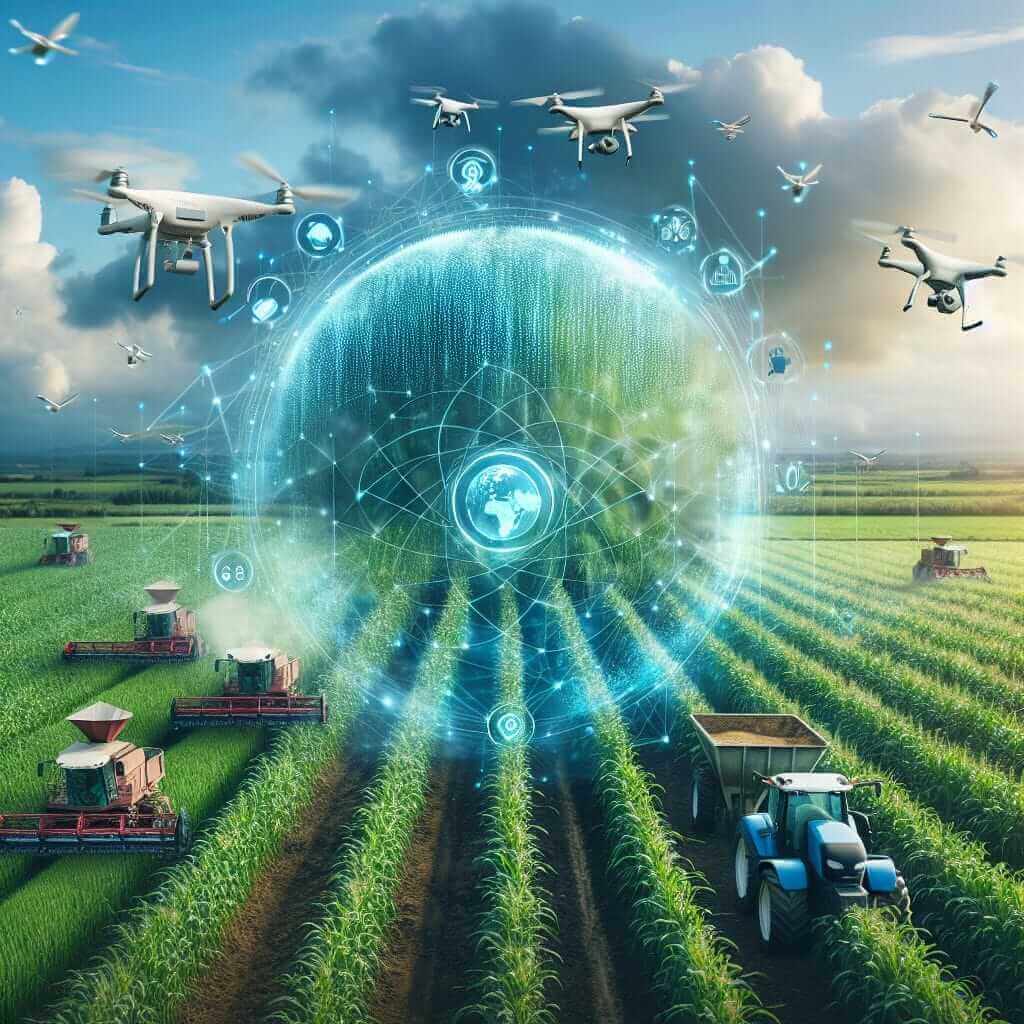The IELTS Reading section is a vital part of the IELTS examination, focusing on assessing a candidate’s reading proficiency through various text types. Topics in the Reading section often cover current affairs, technological advancements, and global issues. One such emerging topic is the application of Artificial Intelligence (AI) in agriculture. Given its prominence in recent studies and media, this subject could likely become a useful practice topic for future tests. This article will provide comprehensible practice material for the IELTS Reading section, centered on the theme “How is AI Being Used to Improve Agricultural Yields?”
Reading Passage on “How is AI Being Used to Improve Agricultural Yields?”
Easy Text
Agricultural practices have dramatically evolved over the last few decades, with AI now contributing significantly to improving agricultural yields. Technologies such as machine learning, big data, and robotics are already making a difference in fields worldwide.

AI technologies help farmers in several ways. Firstly, AI can predict weather conditions, which influences planting schedules. Secondly, AI algorithms can assess soil health by analyzing various soil components, thus recommending suitable crop types and fertilizers. Moreover, AI-driven drones and robots can monitor crop health, detect pest infestations early, and manage resources more efficiently. Additionally, AI-powered data analytics enables precision farming, which ensures that resources like water and nutrients are utilized optimally.
Questions
Multiple Choice
- How does AI help farmers with planting schedules?
- A. By predicting market prices.
- B. By predicting weather conditions.
- C. By recommending fertilizers.
- D. By monitoring crop health.
Identifying Information (True/False/Not Given)
- AI algorithms can assess soil health using chemical analysis. True/False/Not Given
- AI drones only monitor pesticide levels. True/False/Not Given
- Precision farming uses AI data analytics. True/False/Not Given
Sentence Completion
- AI helps in detecting __ early.
- AI-driven __ and robots can monitor crop health.
Answer Key and Explanations
Multiple Choice
- B. By predicting weather conditions.
- AI helps by predicting weather conditions, which assist farmers in planning their planting schedules.
Identifying Information (True/False/Not Given)
- True. AI algorithms can assess soil health by analyzing various soil components.
- False. AI drones monitor crop health, detect pest infestations, and manage resources, not just pesticide levels.
- True. AI-powered data analytics enables precision farming.
Sentence Completion
- AI helps in detecting pest infestations early.
- AI-driven drones and robots can monitor crop health.
Lessons Learned
Students often make common errors, such as misunderstanding the application of AI or misinterpreting specific terms like “precision farming.” Focusing on the contextual use of these terms can greatly enhance their comprehension skills.
Vocabulary
- Evolved (verb) /ɪˈvɑːlvd/: Developed gradually.
- Algorithms (noun) /ˈælɡəˌrɪðəmz/: A set of rules to be followed in problem-solving operations by a computer.
- Precision farming (noun) /prɪˈsɪʒ.ən ˈfɑːrmɪŋ/: Farming management based on observing, measuring, and responding to inter and intra-field variability in crops.
Grammar Focus
- Present Perfect Tense: Used to describe an action that started in the past and continues into the present or its effects are still relevant.
- Example: “Agricultural practices have dramatically evolved over the last few decades.”
- Passive Voice: Often used in scientific texts to focus on actions rather than the subject performing the action.
- Example: “Technologies such as machine learning, big data, and robotics are already making a difference.”
Advice for Achieving High Reading Scores
- Practice regularly: Regular reading practice using a variety of sources will improve your reading speed and comprehension.
- Focus on keywords: Identifying and understanding keywords will help in answering questions accurately.
- Learn vocabulary: Build a strong vocabulary related to common IELTS topics.
- Time management: Learn to manage your time effectively, ensuring you have enough time to answer all questions.
Prepare comprehensively and stay updated with current technological advancements and global issues to perform better in your IELTS Reading section.